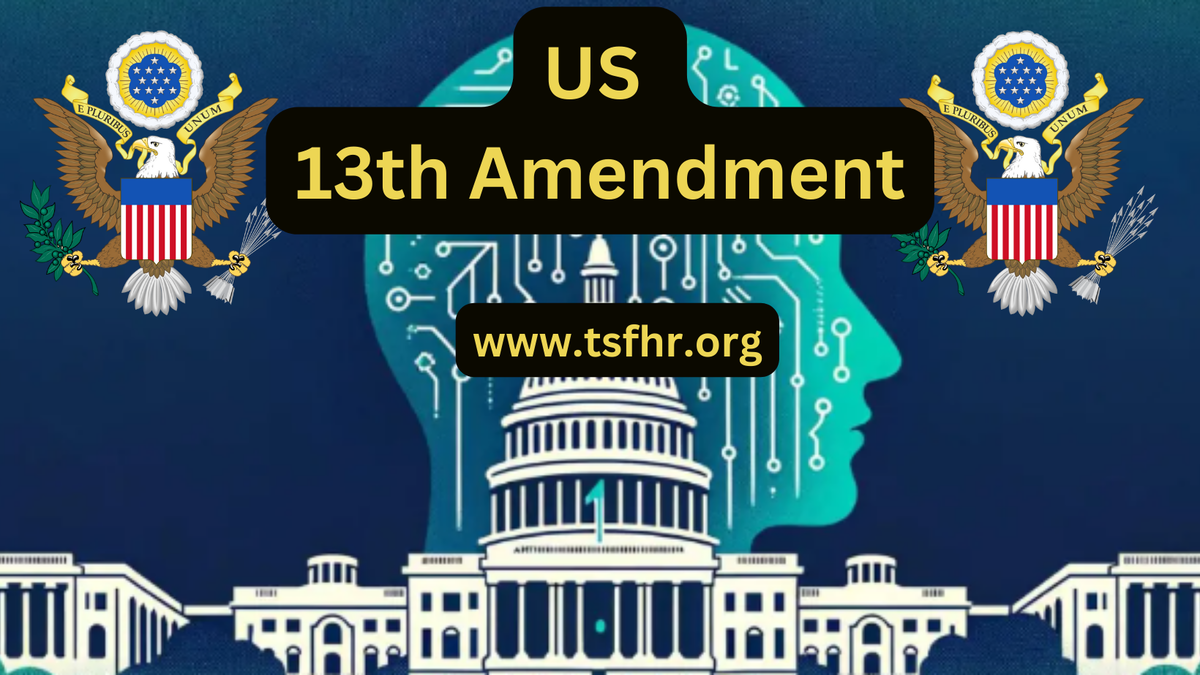What is the 13th Amendment in Simple Terms: (13th Amendment, 13th amendment, slavery amendment, abolished slavery amendment, amendment banning slavery) Learn what the 13th Amendment means in simple terms. Explore its creation, importance, and examples of how it abolished slavery and involuntary servitude in this easy-to-understand guide.
Introduction:
The 13th Amendment is one of the most significant amendments to the U.S. Constitution. It marked a pivotal moment in American history by abolishing slavery and involuntary servitude. This article will break down what the 13th Amendment is, why it was created, and why it remains essential to understanding freedom and civil rights in the U.S. Whether you’re learning about U.S. history or just curious about its impact, this guide will help you understand the 13th Amendment in simple terms.
What is the 13th Amendment in Simple Terms:
What is the 13th Amendment in Simple Terms?
- The 13th Amendment to the U.S. Constitution, ratified in 1865, abolished slavery and involuntary servitude, except as punishment for a crime.
- Simply put, it made slavery illegal in the United States and gave former enslaved people the legal right to freedom.
- It states that “neither slavery nor involuntary servitude, except as a punishment for crime whereof the party shall have been duly convicted, shall exist within the United States, or any place subject to their jurisdiction.”
When Was the 13th Amendment Created?
- The 13th Amendment was created and ratified on December 6, 1865, after the end of the Civil War.
- It was a response to the Union victory, where the abolition of slavery became a central goal. President Abraham Lincoln’s Emancipation Proclamation, issued in 1863, had already freed slaves in Confederate states, but the 13th Amendment made the end of slavery permanent nationwide.
Why Was the 13th Amendment Created?
- The 13th Amendment was created to permanently abolish slavery in the United States.
- Following the Civil War, the country needed a legal framework to ensure that slavery would never return. The amendment was also part of the broader Reconstruction efforts, aiming to rebuild the Southern states and integrate formerly enslaved people into society as free citizens.
Why is the 13th Amendment Important?
- The 13th Amendment is crucial because it marked the legal end of slavery, a practice that had been a dark part of U.S. history for centuries.
- It gave African Americans their freedom and laid the groundwork for future civil rights movements.
- Without this amendment, slavery could have continued in the U.S. long after the Civil War ended, and the nation’s commitment to equality and justice would have been severely compromised.
What Are 13th Amendment Rights?
- The primary right granted by the 13th Amendment is the right to freedom.
- It abolished slavery and involuntary servitude, allowing all individuals to live free from forced labor, unless they are convicted of a crime.
- This right applies to all people, regardless of race, ethnicity, or background, and ensures that no one can be forced into slavery or servitude.
13th Amendment Examples in Action
- End of Slavery: The most direct example of the 13th Amendment’s impact is the abolition of slavery in the U.S.
- Post-Civil War: After the Civil War, formerly enslaved people became free citizens, with the legal protection of the 13th Amendment.
- Modern-Day Impacts: While slavery is officially abolished, some argue that practices like mass incarceration can lead to modern-day forms of involuntary servitude, especially through prison labor, which the 13th Amendment allows under certain circumstances.
Examples of the 13th Amendment Being Violated
- Prison Labor: Some critics of the 13th Amendment argue that it permits slavery in the form of prison labor, where individuals who have been convicted of crimes are forced to work for little or no pay.
- Modern Slavery: Human trafficking and forced labor are modern-day issues that some consider to be violations of the 13th Amendment, even though these practices are illegal, and efforts to combat them continue.
FAQs Section:
Q1: What is the 13th Amendment in Simple Terms for Kids?
The 13th Amendment is a law that says no one can own slaves in the United States. It makes sure everyone is free, except if they are in jail for a crime.
Q2: What Does the 13th Amendment Say in Simple Words?
It says that slavery is not allowed in the United States anymore. The only time someone can be forced to work is if they are in prison because they have been convicted of a crime.
Q3: Why Was the 13th Amendment Created?
The 13th Amendment was created to end slavery in the United States after the Civil War. It made sure that no one could own other people or force them to work against their will, except as punishment for a crime.
Q4: What is the 13th Amendment of the Bill of Rights in Simple Terms?
The 13th Amendment isn’t technically part of the Bill of Rights but is a key amendment that ensures freedom by abolishing slavery and involuntary servitude in the U.S.
Q5: What Are Some 13th Amendment Examples?
The immediate example was the end of slavery after the Civil War.
A modern example includes debates around prison labor, where people argue that the amendment might allow forced labor in certain circumstances.
Conclusion:
The 13th Amendment remains one of the most important parts of U.S. history. It legally ended slavery and gave former enslaved people their freedom. While it has had a lasting impact on American society, debates about its modern interpretations continue, especially concerning issues like prison labor and human trafficking. Understanding the 13th Amendment in simple terms helps us appreciate the importance of freedom and equality in the U.S. Constitution.
Other Amendments Articles
